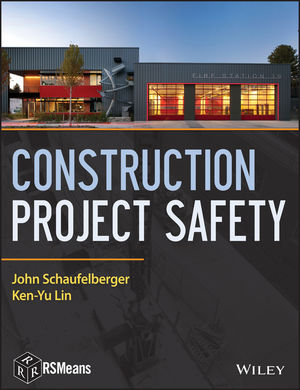Heat’s hidden hazards
How temperature can affect safety in unexpected ways

Photo credit: Magid
Hottest year, hottest season, hottest month — breaking records for heat is no longer a surprise. Even so, companies and safety managers alike are fighting to keep up, not just with the array of regulations and recommendations, but with practical policies to save their employees from harm that can be life-threatening.
With 92 million workers impacted by heat stress in the United States each year, few of us need additional reasons to pay attention to this issue. But beyond keeping workers as acclimated, cool, and hydrated as possible, be sure you also know some of the surprising ways that heat can affect your workers’ well-being, and your safety record, and what you can do to help.
Working in the heat increases accidents and injuries – even those not directly related to heat
Obviously, heat-related injuries like heat exhaustion and heat stroke tend to rise in higher temperatures, but did you know accidents in which heat is NOT directly involved also increase on hot days? A 2021 study by the UCLA Luskin School of Public Affairs showed that the risk of accidents like falls, struck-by incidents, and pinches or crushes continues to rise along with the temperature. Workers are 6 to 9 percent more likely to have accidents in temperatures above 90 degrees Fahrenheit and 10 to 15 percent more likely when temperatures rise above 100 degrees. With the heat routinely rising into triple digits in many areas of the country, making workers aware of this increase in risk may be a good first step to keeping them more vigilant.

Photo credit: Magid
High temperatures cause bad decision making
One thing that may explain those accident statistics is the finding by Scientific American that we actually make worse decisions and have trouble thinking clearly when we’re overheated. This doesn’t just refer to people who are experiencing heat illness. Even people whose bodies are coping well with high temperatures still have impaired thinking. The jaw dropper in this study is that overheated brains tend to make simpler and more straightforward decisions, even when they lead to worse results. Additionally, our brains have trouble processing complex decisions when we’re overheated. This is bad news for safety since an overheated worker may decide it's simpler to skirt safety rules when they’re hot and not thinking clearly. And workers doing complex tasks and leading work crews are likely at even higher risk. While you can’t change the way the brain works, you can take a look at your policies and jobsites to see where you can make decisions simpler. Build in extra checks for hot workdays including buddy systems and reminders. Wherever possible, consider breaking complex tasks down into simpler ones as temperatures rise.
More workers than you may know are vulnerable in the heat
You probably know that heavier workers or those suffering from heart disease or diabetes are more vulnerable in hot environments. But there are many other health conditions that can put workers at risk. Health issues as common as high blood pressure or even seasonal allergies can add vulnerabilities due to the effects of medication treatments. Even people with anxiety or mood disorders or those struggling with substance use disorders are more likely to end up in the emergency room while working in the heat. Some illnesses or medications literally weaken the body’s ability to properly hydrate or to respond to high temperatures. Other conditions may simply put enough strain on a worker’s body that they have fewer resources to cope in the heat. Either way, it’s an important topic for toolbox talks and safety training to make workers aware that they may be at higher risk and need to adjust their routines accordingly. Whether that’s requesting additional breaks, upping their fluid intake, or brainstorming solutions with their doctor, encourage everyone to advocate for personal needs that their manager may not know about.
Employees may show up for work already depleted in a heat wave
An often-overlooked danger during heat waves is people’s inability to fully cool down, even at night. Workers without adequate (or any) home air conditioning may find themselves trying to sleep in warm, humid environments, leaving them sleep-deprived and less able to stay alert and make good decisions, leading to increased accidents. Living constantly at elevated temperatures without the ability to fully cool down also makes workers more susceptible to heat illness on the job. Although you probably can’t change where people live, you can take steps to help. Consider allowing employees to take their cooling gear home with them overnight during a heat wave. Offer before, during, and after-shift cooling opportunities in air-conditioned trailers or buildings to allow people to get their body temperatures back to normal before they head back out into the heat. You might even consider hosting workers’ families for after-hours cool-downs.
Extended heat waves cause workers to call in sick
As the number of days in a heat wave increase, so does absenteeism on the job. Surveys show that everyone from steel workers to garment sewers say they’re more likely to call in sick when a heat wave drags on beyond a week or so. Here too, making work a good place to cool down can help workers to keep showing up.
In general, be sure you’re checking all the boxes for heat safety, including:
- Educating workers about heat safety and heat hygiene
- Proper hydration
- Heat acclimatization
- Measuring the temperature in all areas of your jobsite with a WBGT Monitor
- Physiological monitoring
- Body cooling stations
- Emergency preparedness, including plans for full-body immersion in case of heat stroke
- Portable body cooling PPE that can be reactivated on the job
Hot days and heat waves may require extra reminders, extra checks, and of course, increased cooling measures and breaks to provide as much relief from the heat as possible. Body cooling PPE that can be worn on the job as well as top-notch cooling stations that allow workers to get real relief throughout the day are crucial to keep people functioning and making decisions at their best. Feeling uncomfortable on the job may be the most obvious problem, but as the days get hotter, the effects that has on everyone’s ability to function can’t be ignored.
Read more articles from our summer safety series
Hot Work, Cool Heads: Safety Protocols for Summer Work Sites
Think Beyond Heat to Other Summer-Related Safety Hazards
Employers Should Create a Summer Heat Shield
Looking for a reprint of this article?
From high-res PDFs to custom plaques, order your copy today!









